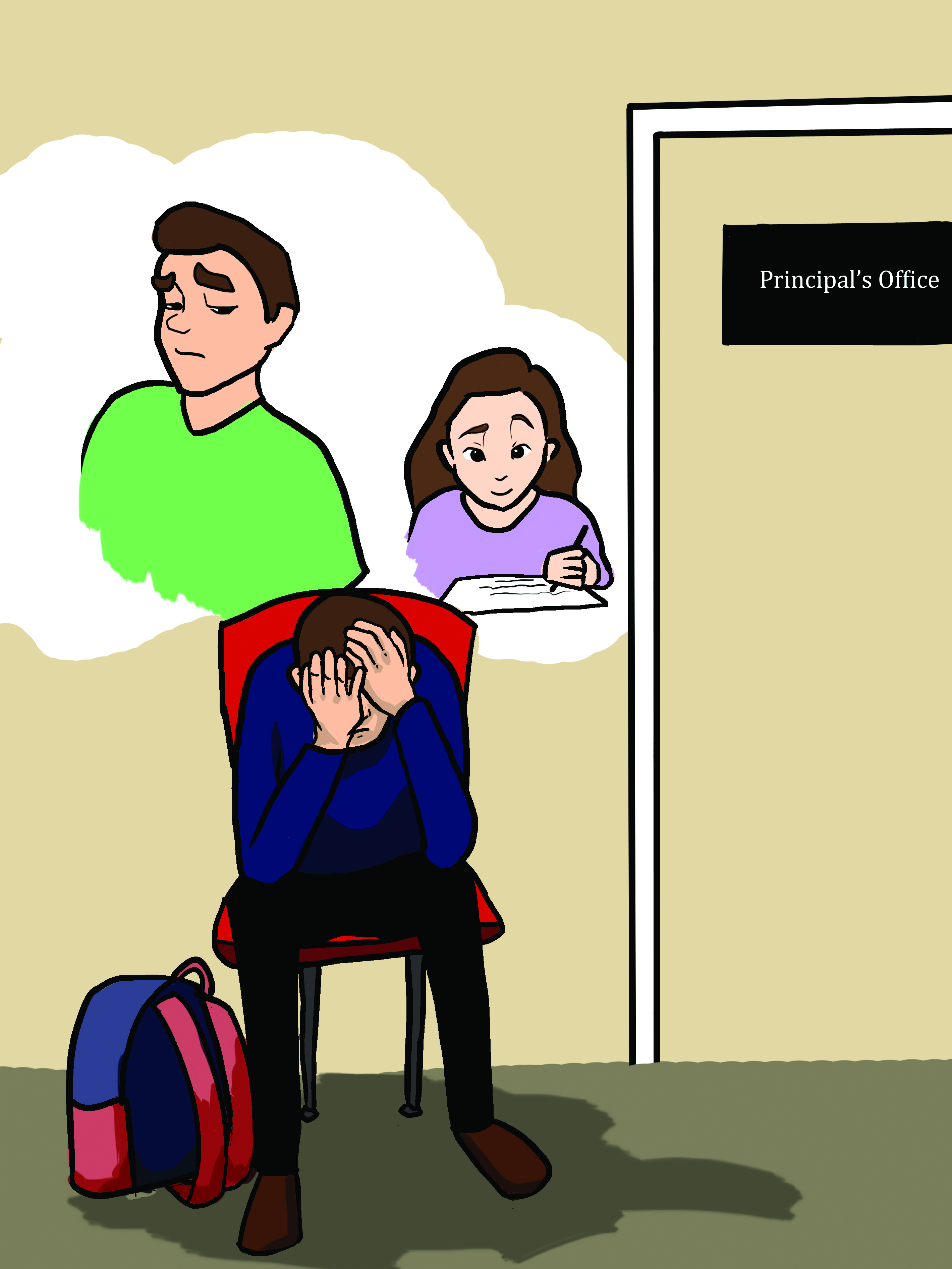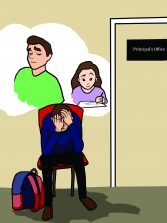
After noticing an uptick in cheating referrals, the administration — with the lead of Assistant Principal Lisa Warnke — is implementing a stricter academic dishonesty policy to cut down on the cheating. Most of what makes up the Aragon Academic Honesty Policy can be found on pages 23-24 of the Red Book.

This section of the Red Book gives examples of what can be considered academic dishonesty, such as plagiarism, unpermitted collaboration and switching tests. It also gives possible consequences for cheating. However, these vary from no credit on an assignment to referrals and expulsion, and with no clear correlation between different acts and each individual consequence, the current cheating policy is hard to understand for students and parents.
Additionally, each teacher may implement differing policies in their respective classrooms, furthering discrepancies. “The current policy in the Red Book is from a number of years ago,” says Warnke, “As teachers came to me with concerns about academic integrity this year, it was clear that some revisions needed to be made. Creating a revised policy will allow all teachers to revisit this subject and make sure the entire staff is on the same page regarding academic integrity.”
Some people may cheat because of the lack of clarity regarding the reprecussions of committing academic dishonesty. “I believe that the motivation to revisit the current Academic Integrity Policy was to clarify what the policy enforces when students decide to cheat, and to match the consequences from the nature of the infraction committed,” says Health teacher Justin Cottrell.
The main reason the administration is re-opening the topic of academic dishonesty is the lack of consistency from classroom to classroom. In fact, this reason was a basis for the Aragon staff to start the discussion. “At a faculty meeting, it was brought to the faculty’s attention that the administrators felt that there was a lack of consistency about how teachers were handling acts of academic dishonesty,” says English teacher Genevieve Thurtle, “Then, it became really clear that we don’t have any kind of consistent policy at Aragon and … we needed a policy that outlined how students can act in a way that’s academically honest and then outlines the consequences for students that break the honor code here.”
The new policy hopes to clarify different acts of academic dishonesty and their consequences, as well as bring more consistency from classroom to classroom. “We are trying to be clearer about what constitutes as academic dishonesty, including specifics in each department. We are also looking into having different levels, tiers or categories for violations and consequences,” Warnke describes, “We also are looking into an Honor Code that students and families would read and agree to each school year.”
Although the policy has not been finalized yet, a draft of the policy was circulated among teachers. Students are likely to see a clearer school-wide cheating policy with a set system of consequences and an academic honor code for the upcoming school year.



